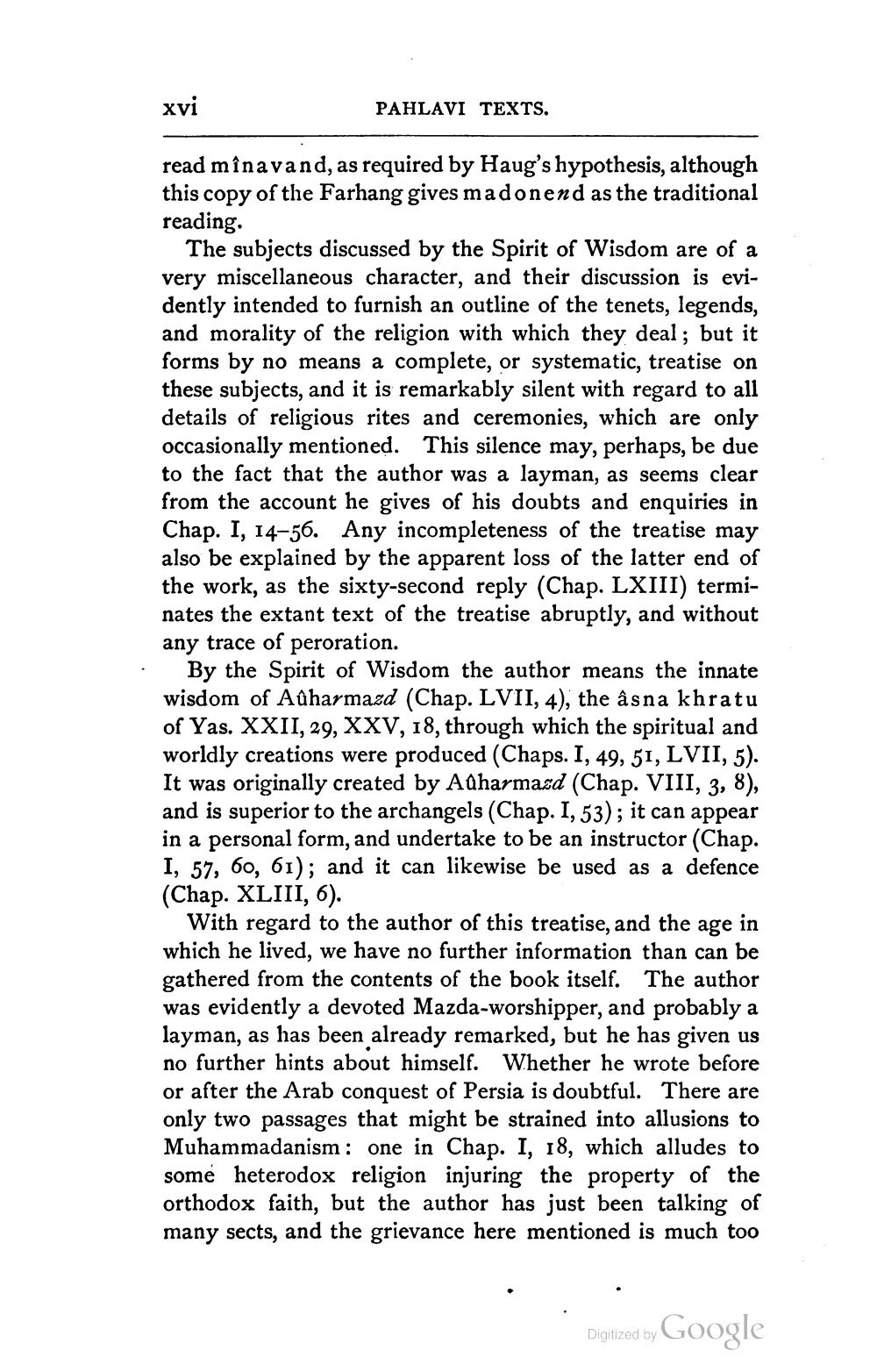________________
xvi
PAHLAVI TEXTS.
brunt
PUI
read mînavand, as required by Haug's hypothesis, although this copy of the Farhang gives madonend as the traditional reading.
The subjects discussed by the Spirit of Wisdom are of a very miscellaneous character, and their discussion is evidently intended to furnish an outline of the tenets, legends, and morality of the religion with which they deal; but it forms by no means a complete, or systematic, treatise on these subjects, and it is remarkably silent with regard to all details of religious rites and ceremonies, which are only occasionally mentioned. This silence may, perhaps, be due to the fact that the author was a layman, as seems clear from the account he gives of his doubts and enquiries in Chap. I, 14-56. Any incompleteness of the treatise may also be explained by the apparent loss of the latter end of the work, as the sixty-second reply (Chap. LXIII) terminates the extant text of the treatise ab and without any trace of peroration.
By the Spirit of Wisdom the author means the innate wisdom of Allharmazd (Chap. LVII, 4), the âsna khratu of Yas. XXII, 29, XXV, 18, through which the spiritual and worldly creations were produced (Chaps. I, 49, 51, LVII, 5). It was originally created by Adharmazd (Chap. VIII, 3, 8), and is superior to the archangels (Chap. I, 53); it can appear in a personal form, and undertake to be an instructor (Chap. I, 57, 60, 61); and it can likewise be used as a defence (Chap. XLIII, 6).
With regard to the author of this treatise, and the age in which he lived, we have no further information than can be gathered from the contents of the book itself. The author was evidently a devoted Mazda-worshipper, and probably a layman, as has been already remarked, but he has given us no further hints about himself. Whether he wrote before or after the Arab conquest of Persia is doubtful. There are only two passages that might be strained into allusions to Muhammadanism: one in Chap. I, 18, which alludes to some heterodox religion injuring the property of the orthodox faith, but the author has just been talking of many sects, and the grievance here mentioned is much too
Digitized by Google




